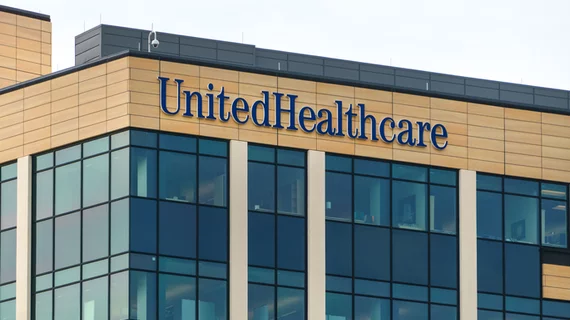UnitedHealthcare eliminating prior authorization for more than 60 radiology services
The nation’s largest commercial insurer is eliminating prior authorization requirements for more than 60 radiology services beginning next month.
UnitedHealthcare announced on Aug. 1 that the total reductions across all specialties represent nearly 20% of overall procedural volumes. The Minnetonka, Minnesota-based insurer said it will begin making the changes in its Medicare Advantage, commercial, Oxford and individual exchange plans on Sept. 1.
UHC first announced plans to make these modifications in March amid pressure from politicians and providers, urging insurers to stop blocking seniors from receiving essential healthcare services.
“This is part of our comprehensive effort to simplify the healthcare experience for our members and network healthcare professionals,” UnitedHealthcare said in this month’s announcement. “While prior authorization remains an important tool to address clinical quality and safety, as well as fraud, waste and abuse, we also know that fewer prior authorizations can help streamline care delivery.”
Impacted radiology services under commercial plans will include breast MRI with contrast, bone marrow imaging, gastroesophageal reflux studies and cardiac shunt detection, according to a list posted on UHC’s website. Meanwhile, the list of eliminated codes for Medicare Advantage also includes myocardial perfusion SPECT (single photon emission computed tomography), also known as a cardiac stress test, used to assess the heart’s blood supply.
The American Society of Nuclear Cardiology highlighted the SPECT change in a news update emailed to members on Tuesday. ASNC said it has “strongly advocated” for streamlining prior authorization requirements, supporting the Improving Seniors’ Timely Access to Care Act.
“ASNC commends UnitedHealthcare for recognizing the burden prior authorization can place on patients and providers,” Friederike Keating, MD, chair of the society’s Health Policy Committee, said in an Aug. 6 announcement. “We are pleased efforts are underway to minimize this burden.”
UHC said it also plans to implement a national gold card program next year for provider groups that meet certain requirements. Those who qualify would follow a “simple administrative notification process” for most procedure codes, instead of the typical prior authorization steps. The move mirrors a recent proposal from House lawmakers to implement a national gold card program.

